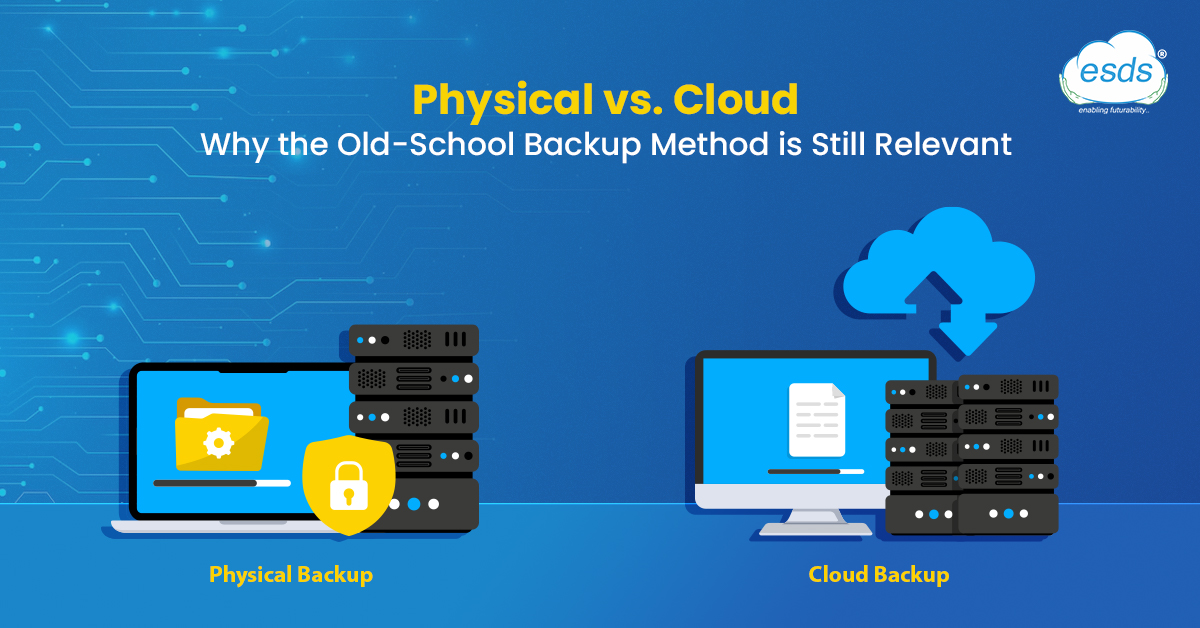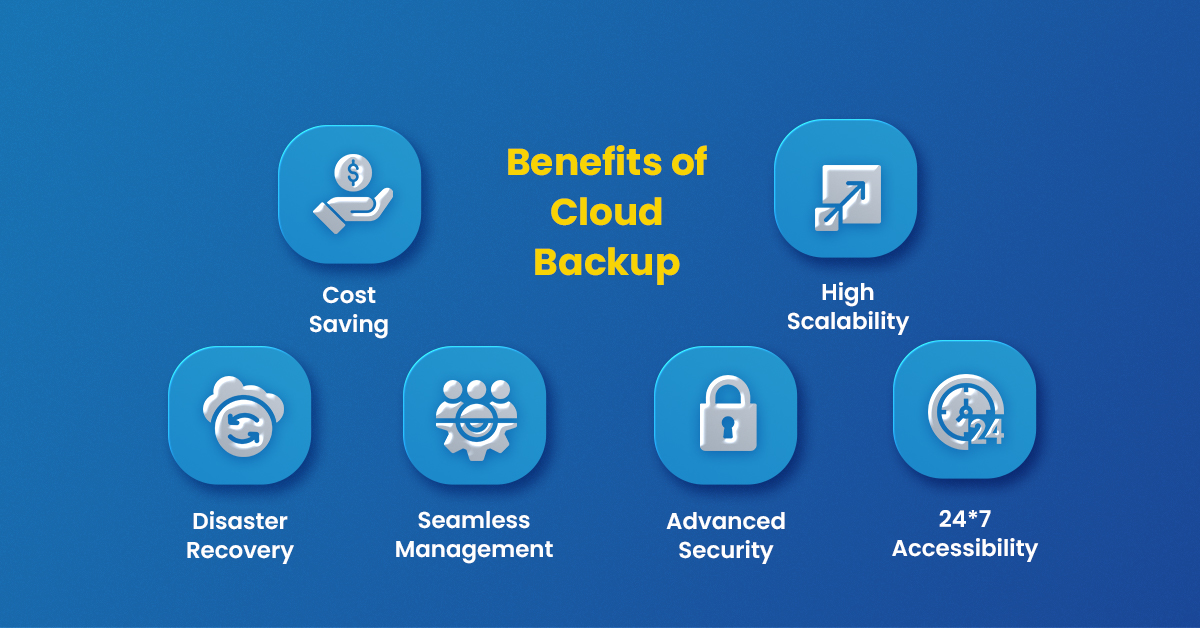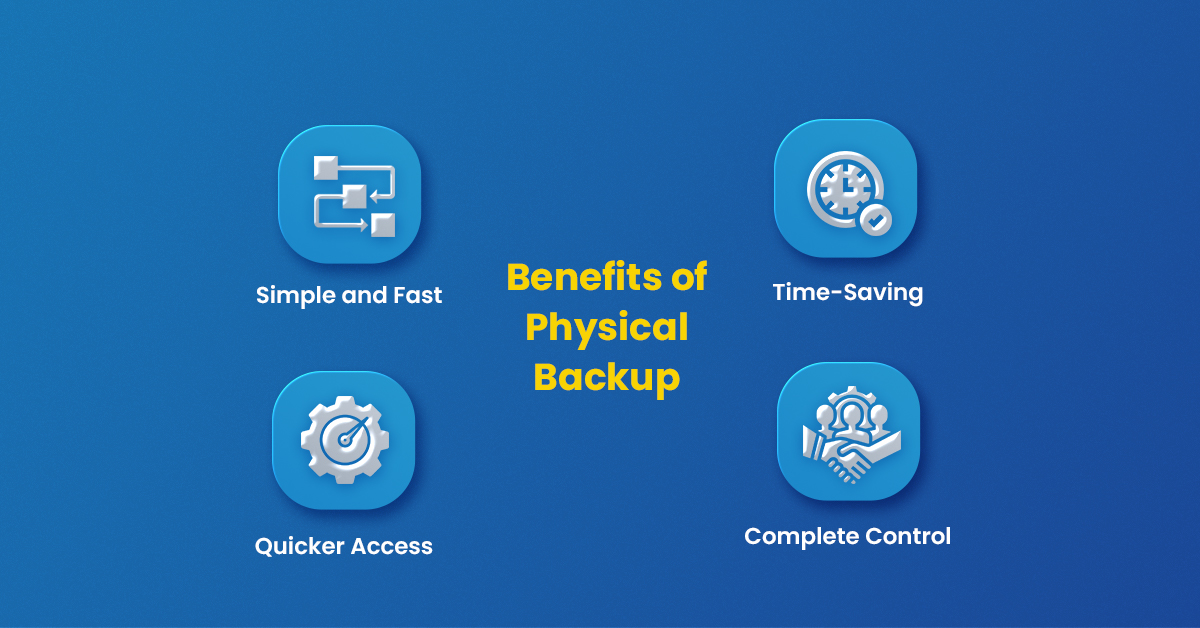Physical vs. Cloud: Why the Old-School Backup Method is Still Relevant

As we continue to rely heavily on data in both our personal and professional lives, its safety and security have become of paramount importance. While cloud storage has gained popularity in recent years, physical backups remain a tried and tested way to protect your data. Although a majority of sectors have moved to the cloud for realized the cloud’s potential and credibility. As a result, the cloud industry has picked up the pace and is all set to reach $1.3 trillion globally. As for physical backup solutions remain a relevant and important aspect of data protection, even with the rise of cloud storage. In fact, according to a recent survey conducted by Acronis, 86% of IT professionals still use physical backups as part of their data protection strategy. One reason for this is that physical backups offer complete control over the backup and restore process.
Additionally, physical backups can provide faster restore times and better protection against data loss due to malware or cyber-attacks. When it comes to data backup, the discussion of cloud backup versus traditional backup is an important one. While the cloud backup market is growing rapidly, traditional backup solutions still offer significant benefits to organizations. Traditional backup players have been around for much longer and have a proven track record of reliability and security. Additionally, traditional backup solutions can offer more control and customization options compared to cloud-based solutions. It’s important to consider the specific needs of your organization and the advantages and disadvantages of each backup method before making a decision.
How does a cloud backup help?
Cloud backup is a process of duplicating data over a network to a storage server located off-site, usually managed by a third-party service provider. The utilization of cloud backup can prove advantageous in meeting those requirements since the information is kept off-site, offering an alternative storage solution in addition to the conventional disk-based hardware.
Benefits:

Cost Saving – There are no additional initial expenses or administrative fees involved
High Scalability – Choice of usage as per your business’s needs and demands
Disaster Recovery – Ensured data safety during times of a crisis
Seamless Management – Less time-consuming and needs lesser resources to manage
Advanced Security – Cloud backup service providers employ advanced measures to ensure data security and compliance, which provides better protection to the stored data compared to local backup options.
24*7 Accessibility – Through the magic of the internet data is accessible anytime from anywhere
How does a physical backup help?
Organizations have been using local backup, also referred to as traditional backup, for a considerable amount of time to back up their data at the primary site. This usually involves the use of disk-based hardware by the organizations, and backup software is responsible for managing the transfer of data to the hardware. The software can function independently or be integrated with the hardware.
Benefits:

Simple and Fast – It simply creates a replica and transfers it to another device.
Time-Saving – Saves more time comparatively and storage
Quicker Access – As the dependency on the internet is not there, you can quickly access your data
Complete Control – Assured control of the data stored
Additionally, a physical backup ensures safety against data breaches or cyber-attacks which is a major positive. On the other hand, there’s also a possibility of misplacing or losing the physical device such as a pen drive or a hard disk which can result in loss of data. While a physical backup brings certain benefits, it also has some cons attached to it. As we are moving ahead in this fast-paced digital transformation world, we must learn to advance along with it for the better.
Having a Backup is essential – Choosing the Ideal Backup is a Strategy
In today’s digital world, having a backup is crucial. It involves creating a duplicate of your important files and storing them in a separate location to ensure that you have a copy in the event of a mishap or system failure. The loss of critical data, whether it’s personal or business-related, can be catastrophic. Backing up your data helps prevent information loss, reduces downtime, and saves you money and resources. With the availability of cloud storage and affordable backup solutions, there is no excuse for not having a backup of your critical data. It is essential to make backup a routine practice to safeguard against potential data loss.
Here are the most important factors to consider while choosing a backup for your business:
- Reliability and ease of use: Choose a backup solution that is reliable and easy to set up and use, reducing the risk of human error and potential data loss.
- Compatibility: Check if the backup solution works with the operating system of your devices, including smartphones, tablets, and computers.
- Security: Look for a backup solution that ensures your data is encrypted and protected from unauthorized access.
- Storage capacity and cost: Consider the storage capacity and cost of the backup solution, as some solutions offer free storage up to a certain limit, while others require a subscription fee.
- Flexibility: Choose a backup solution that provides the flexibility to schedule backups and restore data.
To conclude:
While cloud backup options are more advanced, local backup solutions are also improving. Hybrid backups, which combine both cloud and local backups, offer strong data protection and can ensure recovery in disaster situations or data loss. It’s important to follow the 3-2-1 backup rule and not rely on a single backup source for recovery. Carefully assess your organization’s backup and recovery needs, talk to other users, and make an informed decision. Another important aspect is to wisely choose a cloud/data storage service provider that is trustworthy, reliable, and proven for impactful results.
- Unlocking Data’s Time Machine: The Importance of Database Point-in-Time Recovery - August 2, 2023
- Future-Proof You’re Data: Navigating the World of Enterprise Backup and Data Protection Solutions - July 7, 2023
- Unleashing the Potential of Long-Term Data Retention: Exploring Trustworthy Backup - May 31, 2023
